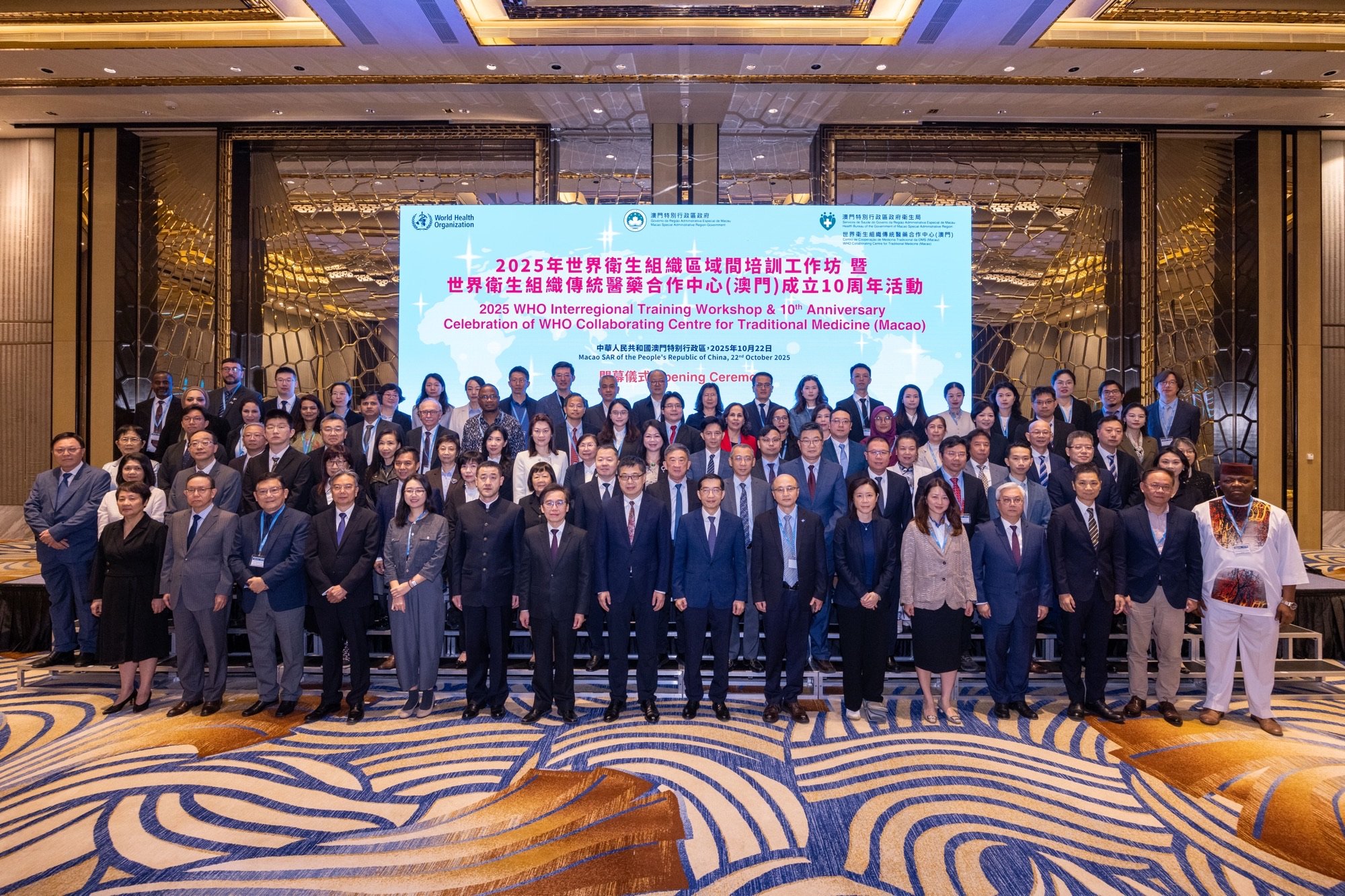
The World Health Organization (WHO) convened the Interregional Training Workshop on Ensuring the Quality and Safety of Traditional, Complementary and Integrative (TCI) Medicine Products from 22–24 October 2025 in Macao SAR, China. The workshop was organized as part of WHO's ongoing efforts to strengthen regulatory systems and promote safe integration of traditional, complementary and integrative medicine (TCIM) into national health systems.
The training brought together more than 40 participants from 18 countries and two Special Administrative Regions (Angola, Brazil, Cabo Verde, China, Egypt, India, Indonesia, Iraq, Lao People's Democratic Republic, Malaysia, Mozambique, Nepal, Pakistan, Poland, the Republic of Korea, Thailand, Timor-Leste, and Viet Nam, as well as Hong Kong SAR China and Macao SAR China), representing the six WHO regions. Participants included government regulators, technical experts, researchers, and representatives from WHO Collaborating Centres, who shared national experiences and explored practical approaches to quality assurance, safety monitoring, and evidence generation for TCIM products.
Advancing WHO's global strategy for traditional medicine
This interregional workshop contributes directly to the implementation of the WHO Global Traditional Medicine Strategy 2025–2034, endorsed by the Seventy-eighth World Health Assembly earlier this year. The Strategy provides a forward-looking framework for countries to strengthen research, regulation, and integration of traditional medicine into health systems, in alignment with the goals of universal health coverage and the WHO Fourteenth General Programme of Work.
Sessions focused on three thematic areas — research and evidence, policy and regulation, and patient safety — that together form the foundation for ensuring the quality and safety of TCIM products.
Country presentations showcased innovative approaches such as DNA barcoding and AI for herbal ingredient identification and development of national pharmacopoeias. Speaking at the opening session, Dr Kim Sungchol emphasized that "this workshop reflects WHO's commitment to translating global strategies into concrete country action. By sharing practical experiences and regulatory innovations, Member States are collectively building stronger and safer systems for traditional, complementary and integrative medicine."
Strengthening collaboration and capacity through WHO networks
The event also marked the 10th anniversary of the WHO Collaborating Centre for Traditional Medicine (Macao), designated in 2015. Over the past decade, the Centre has worked closely with WHO to deliver interregional and local training activities benefiting more than 3100 professionals worldwide.
In his welcome address, Dr Lo Iek Long, Director of the Macao Health Bureau, reaffirmed Macao's strong commitment to supporting WHO's work in traditional medicine and to advancing regional collaboration in quality assurance and regulatory harmonization.
Supporting WHO's global agenda and upcoming summit
The outcomes of this workshop will contribute to global discussions at the forthcoming 2nd WHO Traditional Medicine Global Summit, where a dedicated session on "Regulation of TCIM Products" will explore ways to accelerate implementation of the WHO Global Traditional Medicine Strategy 2025–2034.
Through sustained collaboration and capacity building, WHO continues to support Member States in ensuring that traditional, complementary and integrative medicine products are safe, effective, and of assured quality – contributing to health for all.






